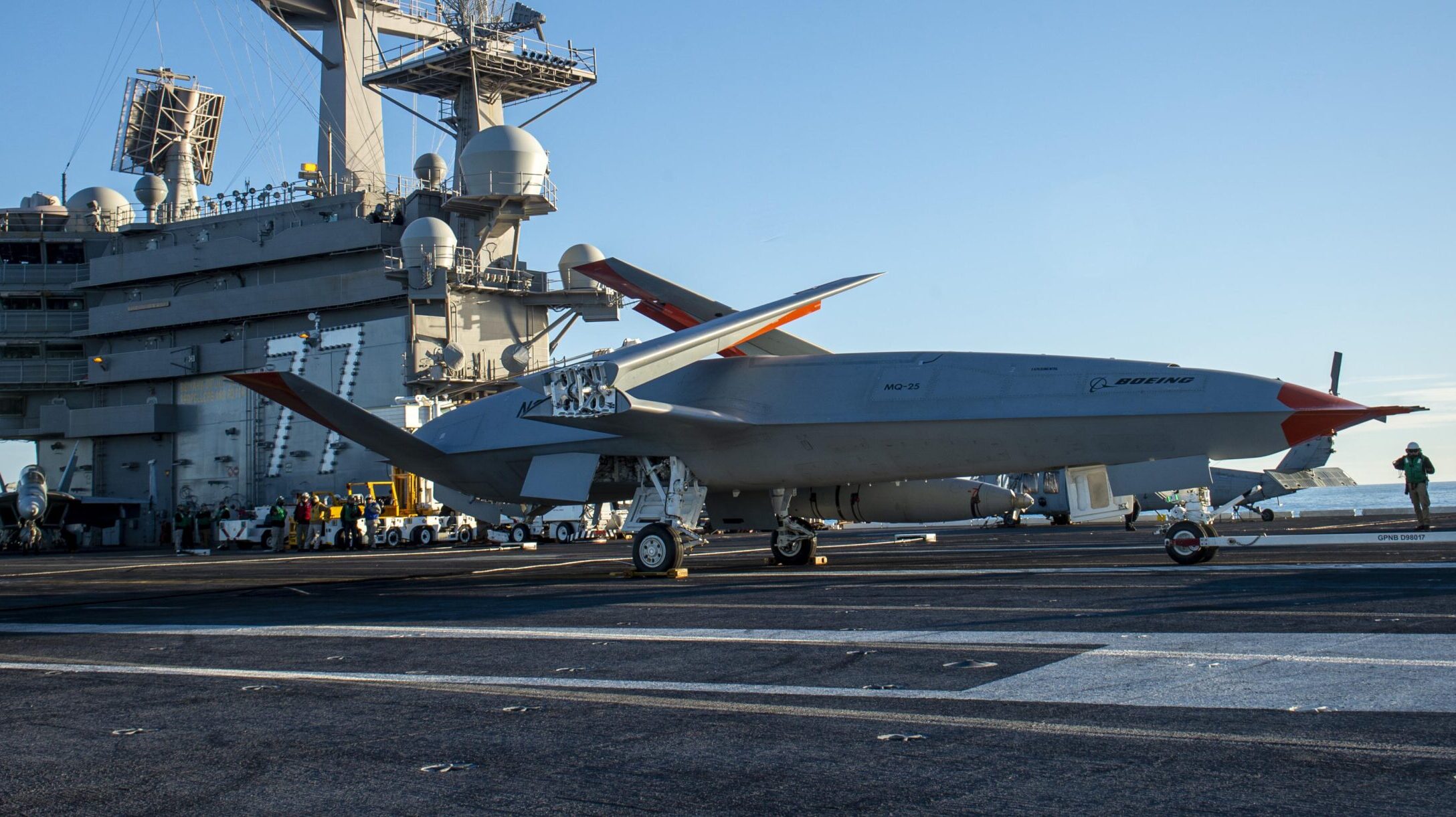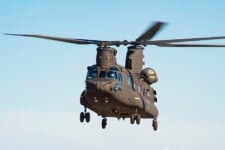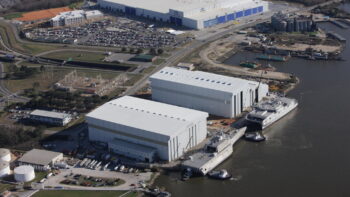
A Boeing unmanned MQ-25 aircraft rests aboard the flight deck aboard the aircraft carrier USS George H.W. Bush (CVN 77). (U.S. Navy/Mass Communication Specialist 3rd Class Brandon Roberson)
WASHINGTON: Boeing announced today about $400 million in charges associated with fixed-price defense contracts that had gone over budget, most significantly a $147 million pre-tax charge on the Navy’s MQ-25 tanker drone.
The losses contributed to a tough financial quarter for Boeing’s defense business, with earnings of $71 million and an operating margin of about 1%, the company reported as part of its second quarter 2022 earnings.
In a call with investors, CEO Dave Calhoun attributed defense-charges to “largely, supply chain impacts and inflation.”
The Navy awarded Boeing an $890 million fixed-price contract in 2018 to develop the MQ-25 and deliver seven aircraft and test articles, according to Boeing’s SEC filings. So far, Boeing has logged $516 million in pre-tax charges for the program, including the most recent losses posted today, which the company stated were “primarily driven by additional testing and certification activities, supplier quality, and engineering design challenges.”
RELATED: Boeing adds $1B in new charges for Air Force One replacement, T-7 Red Hawk programs
While the charge on the MQ-25 program was the largest one announced by Boeing today, several other programs also exceeded their cost ceilings this quarter:
- The Commercial Crew program, in which Boeing provides NASA transportation to the International Space Station, logged a $93 million charge due to updates to the launch manifest and additional costs incurred as part of Orbital Flight Test 2 in May
- The T-7A Red Hawk trainer jet added another $87 million charge this quarter, for a whopping $367 million this year spread among the development and production portion of the program. Boeing attributed the charges to “customer testing requirements… and hardware qualification issues” as well as general cost growth and delay due to continued supply chain issues.
- The KC-46 posted a $44 million charge due to higher supply costs and production disruption. The tanker has logged more than $5 billion in cost overruns over its development, meaning that cost overruns have exceeded the $4.9 billion contract Boeing agreed to in 2011.
- The VC-25B presidential aircraft, which will receive the moniker “Air Force One” when flying the president, recorded a $26 million charge as Boeing continues to deal with “higher supplier costs, higher costs to finalize certain technical requirements and schedule delays,” the company said in its SEC filings.
In all cases, Boeing noted in that “risk remains that we may be required to record additional losses in future periods.”
Under former CEO Dennis Muilenburg, Boeing showed a willingness to accept fixed-price contracts on defense programs, with the company habitually lowballing bids assuming it would take a financial hit during development but make up profits later in the production and sustainment phases of the program.
But there are signs that Boeing’s current leadership team will take on less risk in future fixed-price contracts. Calhoun, who became CEO in 2020, has indicated reluctance to continue that practice, and during a roundtable with reporters earlier this month, new Boeing Defense CEO Ted Colbert said the company will take a “different approach” on future contracts when it makes sense, based on the lessons learned on programs such as the KC-46 tanker.
“We have learned a ton of lessons, especially around contracting,” he told reporters ahead of Farnborough Airshow. “Frankly, we’ve had a discussion with our customers in the procurement space about those lessons learned. And we’ve all learned. So we’re working together to make sure that anything we do going forward will heighten the probability of getting things done in a timely manner.”
Despite this quarter’s losses, Calhoun said today that he was “more bullish” on the prospect of international sales now than he had been since he took over the company, specifically for the KC-46 tanker and MQ-25. But, he noted, that remains a longer-term play.
“They might be on the leading edge of that demand curve, but it’s not going to happen in the next six months,” he said. “In fact, it’ll take us probably a year to get to where that demand begins to manifest into real orders.”
Sullivan: Defense industry ‘still underestimating’ global need for munitions
National Security Advisor Jake Sullivan said that there are “no plans” for another Ukraine supplemental at this point.


























